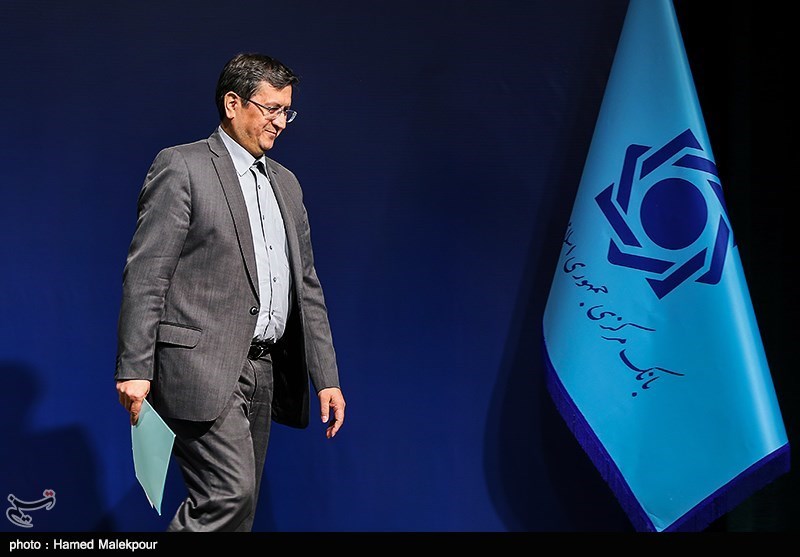Iran Pursuing Options to SWIFT

EghtesadOnline: Governor of the central bank says if Iran is disconnected from the Belgium-based financial messaging service SWIFT (the Society for Worldwide Interbank Financial Telecommunications), alternative systems will be used to preserve ties with its trading partners.
Abdolnasser Hemmati made the comments as SWIFT said this week that it was suspending access of some Iranian banks. It made the decision, according to a statement, “in the interest of the stability and integrity of the wider global financial system.” SWIFT, however, said the decision was “regrettable”.
That decision came after the US re-sanctioned Iran last week after Donald Trump abandoned an international nuclear deal signed in 2015 that aimed to curb Iran’s nuclear programs. US Treasury Secretary Steven Mnuchin had said sanctions could be slapped on SWIFT itself if it worked with the roughly 50 Iran banks listed under the unilateral US sanctions.
SWIFT facilitates cross-border transactions tied to more than 11,000 banks around the globe. Mnuchin said Thursday that SWIFT will be cutting off the Central Bank of Iran as well, Financial Tribune reported.
"I understand that SWIFT will be discontinuing service to the Central Bank of Iran and designated Iranian financial institutions," Mnuchin said in a tweet. "SWIFT is making the right decision to protect the integrity of the international financial system."
The decision by SWIFT means the CBI will be cut off from the international banking system. SWIFT has disconnected the CBI in the past, when the Obama administration was pushing Iran to engage in diplomatic talks that led to the 2015 nuclear agreement. But Iran observers tell CNN that the Trump administration wasn't likely to replicate the success of those sanctions.
Getting Ready
Hemmati said in an interview published on the CBI website that the new US sanctions had been anticipated by the CBI and the necessary planning for even a worse scenario is in place.
"The necessary talks have been held by trading partners and the method of doing business with them has been coordinated," the senior banker said.
Mohammad Reza Pour-Ebrahimi, who heads the Majlis Economic Commission, told IBENA that new sanctions do not threaten the economy.
"The US has taken every possible hostile measure against Iran and there is nothing left for it to do anymore," he said as a matter of fact.
Tough banking sanctions have long been imposed on Iran and the Joint Comprehensive Plan of Action (Iran nuclear deal) did nothing to improve Iran’s banking relations with the outside world, the lawmaker rued.
“No, the sanctions will not affect foreign currency rates,” Pour-Ebrahimi said when asked whether or not the new US sanctions would trigger a shock to the already volatile currency market.
Referring to the role of dollar in banking transactions, Asadollah Gharekhani, spokesman for the Majlis Energy Commission, said keeping up the current trend i.e. imposing new restrictions on Iran’s ties to other countries, will lead to the weakening of the dollar, which currently has a 60% share in global banking transactions.
The US has failed, he recalled, in its unending attempts to cripple Iran’s economy by imposing unfair sanctions and threatening other countries wanting to conduct normal trade with Tehran.
“It was recently revealed that SWIFT largely benefits the US alone and many countries are contemplating another route to do banking.”
Housing the SPV
Despite rumors that no one is willing to host a European trade mechanism office to work with Iran due to fears of US sanctions, France and Germany have been named as viable options.
Either France or Germany might become the host nation for the European clearing house, usually referred to as a "special purpose vehicle" (SPV) — a payment mechanism that would allow European companies to bypass US restrictions on Iran, Sputnik reported.
The establishment of the new mechanism is widely viewed as the moment of truth on whether the EU is genuinely willing and able to live up to its promises to preserve the Iran nuclear deal.
The SPV is planned to serve as a barter exchange mechanism, using neither US dollars, nor monetary exchanges between EU nations and Iran. Instead, it would utilize "credits" as a form of virtual currency. An Iranian company selling goods to a European firm would accumulate "credits" that could be later used to buy other goods from European firms.
There are rumors that no European nation is willing to host the SPV, fearing further ramifications from the hostile Trump administration. However, sources close to the process told the Guardian that candidates have come forward, and it is the discussion of the details that has stalled the establishment of the SPV.
For example, it is yet to be determined how a German company operating in the US would be able to avoid secondary sanctions for using the SPV. US secretary of state, Mike Pompeo's, recent announcement that some countries will receive temporary waivers from the sanctions further complicates the process.


